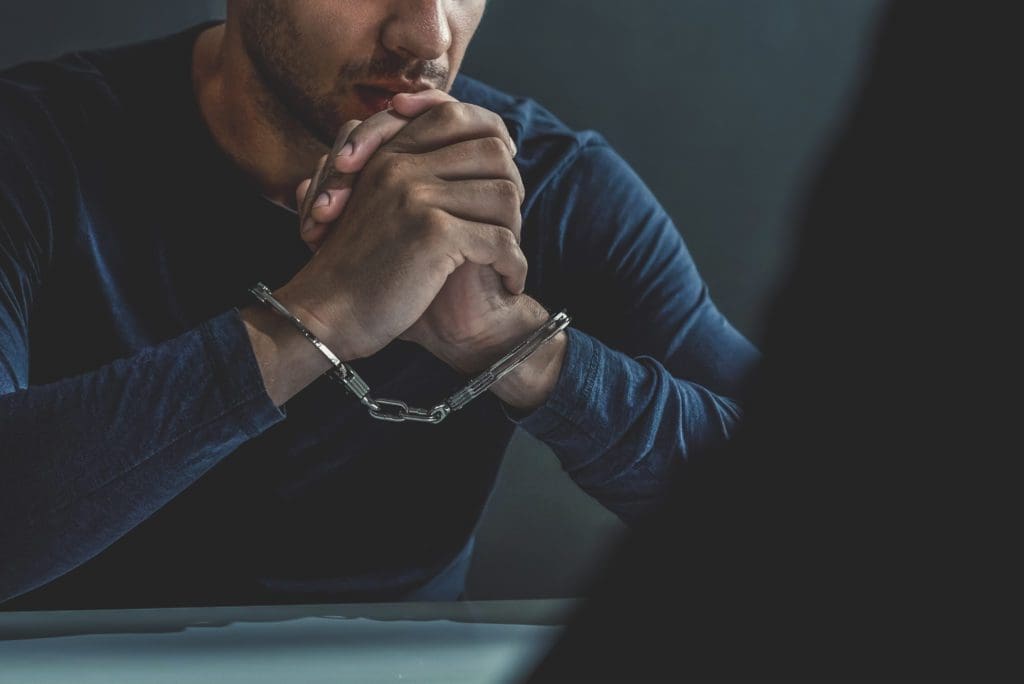Facing a probation revocation? Our criminal defense attorneys explain a few common issues:
Upon failing probation, extended supervision, or parole an offender faces the possibility of returning to jail or prison. That possibility becomes reality upon the probation officer initiating revocation proceedings and placing the offender on a hold.
If your probation officer threatens to revoke you, issues a warrant for you, or if you’ve committed a rule violation, certainly call a criminal defense attorney. At Van Severen Law Office our criminal defense attorneys aggressively fight probation revocations. Finally, call us at (414) 270-0202 to get started.

What’s the first step of probation revocation?
First, the probation officer places the offender on a “probation hold.” The agent initiates the hold when he believes the offender violated a rule of his supervision. Depending upon the underlying sentence, the offender may serve his hold in a local prison. For example, in Milwaukee there is the Milwaukee Secure Detention Facility, or MSDF. That facility is a prison. Only offenders facing revocation, or those serving short prison/rehab time find themselves in MSDF. Finally, smaller counties house inmates facing revocation in the county jail.
Investigation into the allegations:
The agent visits the offenders after a few days in custody. It’s during that interview the agent interviews the offender about what happened. Wisconsin law requires offenders give statements to their agents. Subsequently, law enforcement cannot use that statement for other prosecution. It’s a compelled statement. Therefore the agent doesn’t read Miranda warnings to the offender.
It’s frustrating when the probation officer doesn’t visit the offender immediately. However, that’s usually the process. Unfortunately, the agent need not immediately talk to the offender. The agent must meet with the offender to investigate a violation within a “reasonable amount of time.” If the offender has been the subject of an Order to Detain, the Department of Corrections advises its officers they should interview offenders within 3 days of being taken into custody. Finally, a supervision can extend the 3 days by an additional 3 days. The Regional Chief may extend for an additional 5 working days. Lastly, if further extension is necessary, a DOC administrator may approve “any additional time.”
What happens after the probation revocation investigation?
Upon completion of the investigation, the probation agent makes an important decision: am I going to revoke the offender or not? If the agent decides to revoke the offender, the offender must be notified within 2 working days of the violations he’s facing and the rights he has at a hearing. However, if the agent decides to not pursue revocation, the jail releases the offender.
The probation preliminary hearing:
Significantly, if the defendant requests, a preliminary hearing will be held within 15 days of the date of detention. In special circumstances that hearing can be pushed out an additional 5 days. There are a few purposes of the preliminary hearing:
- Firstly, whether there is probable cause to believe that the offender violated the terms of supervision; and
- Secondly, whether the offender should remain in custody pending the final revocation hearing.
Offenders, in the huge majority of cases, waive their preliminary hearing. If the probation officer obtained a confession from the offender, the offender no longer has the right to a preliminary hearing.
It is rarely won, is often based on hearsay, and usually does not involve outside witnesses.
The final revocation hearing:
The final hearing must begin within 50 calendar days of the date of detention “unless the hearing has been postponed for cause.” Under special circumstances an additional 10 calendar day extension can be granted. Upon a violation of the timeframes, the jail may release the offender.
At the final hearing the agent must be prepared to prove the offender committed the alleged violations, that the conduct constitutes a violation of the rules or conditions of supervision, and the violations are sufficiently serious to require revocation according to legal standards. If the agent succeeds at the final hearing, the offender is revoked. With a solid defense, and a showing the agent failed to show a rule violation, the offender won’t be revoked.
Hire a top criminal defense attorney to work on your probation revocation case.
Probation revocations are incredibly complex matters. They’re certainly subject to difficult timeframes and rules. Our criminal defense attorneys understand the complexities involved in revocations. Surely you can fight revocation proceedings. And we think you should certainly do it with the assistance of a criminal defense attorney.
Our defense attorneys win revocations. We’ve won revocations. If you, a loved one, a friend, or anyone else faces revocation, call us. Finally: we answer phones 24/7. (414) 270-0202
(Our criminal defense attorneys updated this blog post on December 5, 2019.)


